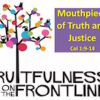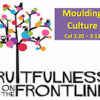Peter Finnis preaches on Matthew 11 vs 28 – 12 vs 14 and Jesus’ attitude towards the Sabbath.
In contrast to the Old Testament Sabbath and the views of the Pharisees, we learn that Sabbath rest is wholeness and well-being in our whole lives, to be found only in Jesus when we walk alongside Him. Sabbath rest for the people of God is to submit our efforts and our work to Him – to enter God’s rest in order to rest from our own work.
Our lives surrendered to Christ brings rest and what follows is Christ’s work in us.
“Our hearts are restless until they find their rest in God”










